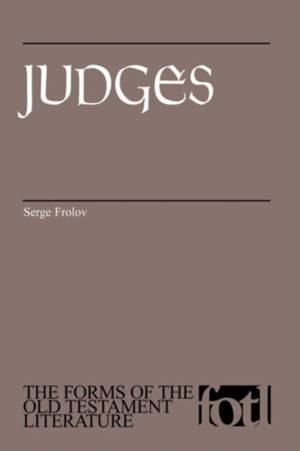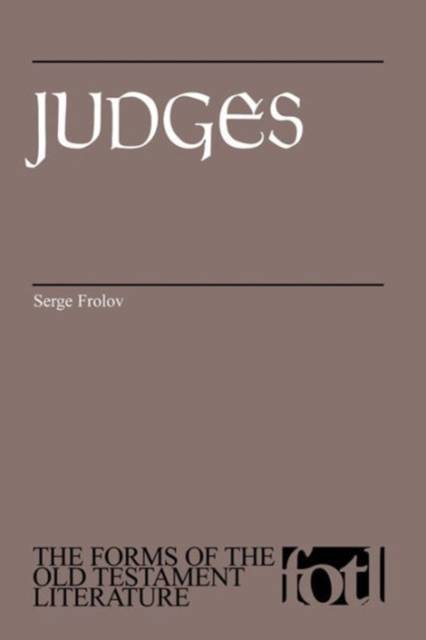
- Afhalen na 1 uur in een winkel met voorraad
- Gratis thuislevering in België vanaf € 30
- Ruim aanbod met 7 miljoen producten
- Afhalen na 1 uur in een winkel met voorraad
- Gratis thuislevering in België vanaf € 30
- Ruim aanbod met 7 miljoen producten
Zoeken
€ 78,45
+ 156 punten
Omschrijving
This commentary is the eighteenth published volume in The Forms of the Old Testament Literature (FOTL), a series that aims to present a form-critical analysis of the books and units in the Hebrew Bible. Serge Frolov's valuable study of Judges, addressing both synchronic and diachronic perspectives, offers the first full-scale form-critical treatment of Judges since 1922 and represents an important application of form criticism as practiced today. Fundamentally exegetical, Frolov's work examines the structure, genre, setting, and intention of Judges. Focusing on the canonical Hebrew text, Frolov argues that what we know as the book of Judges is not a literary unit but rather a series of interconnected units that are for the most part closely linked to adjoining books. In particular, he shows how the sequence "apostasy-oppression-repentance-deliverance" traverses the boundary between Judges and Samuel. Frolov also analyzes the history behind the form-critical discussion of this book and exposes the exegetical process so as to enable students and pastors to engage in their own analysis and interpretation of Judges.
Specificaties
Betrokkenen
- Auteur(s):
- Uitgeverij:
Inhoud
- Aantal bladzijden:
- 390
- Taal:
- Engels
- Reeks:
Eigenschappen
- Productcode (EAN):
- 9780802829672
- Verschijningsdatum:
- 22/05/2013
- Uitvoering:
- Paperback
- Formaat:
- Trade paperback (VS)
- Afmetingen:
- 152 mm x 229 mm
- Gewicht:
- 521 g

Alleen bij Standaard Boekhandel
+ 156 punten op je klantenkaart van Standaard Boekhandel
Beoordelingen
We publiceren alleen reviews die voldoen aan de voorwaarden voor reviews. Bekijk onze voorwaarden voor reviews.











